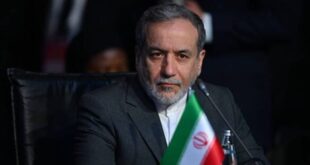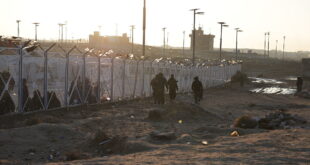Von der Leyen’s ‘cabinet’ for the next five years did not quite achieve gender parity. Its makeup also reflects how Poland’s clout has improved in Brussels since the Tusk government took power, while Hungary’s star continues to wane.
After weeks of intensive negotiations with the 27 EU member states – and several last-minute changes – the president of the European Commission, Ursula von der Leyen, announced on Tuesday her ‘cabinet’ that will serve under her for the next five years.
The European Commission is a college of 27 commissioners, with each member responsible for a specific area – similar to ministers in national governments.
Commissioners typically have political affiliations that often reflect a major party of the country from which they hail, although they never – or at least should not – represent it at the EU level: EU treaties prohibit commissioners from taking instructions from national governments, even informally, to ensure the full independence of the institution from the governments of member states, especially the most powerful ones.
Another principle of EU treaties is that each member of the college is equal – and each commissioner has an equal responsibility to deliver on the Commission’s priorities. Yet that’s an artifice – some portfolios are clearly more important than others, and the area awarded to a member state’s commissioner reflects the importance of that country within the EU and its relationship with the leaders of the Commission.
Let’s look at how the countries of Central and Southeast Europe fared when the jobs were parcelled out.
Poland
Piotr Serafin, 50, got the portfolio of Budget, Anti-Fraud and Public Administration, as had been agreed already in August by Polish Prime Minister Tusk and Commission President von der Leyen; Polish President Andrzej Duda also agreed to Serafin’s nomination at the time.
Serafin is Poland’s current permanent representative to the EU and a long-term Brussels insider. As such, he is expected to pass the obligatory European Parliament hearings on nominations, expected in November, without serious difficulty.
Serafin is considered an expert on EU budgetary matters, which he has been dealing with since 1998, when he first joined Poland’s team in charge of EU accession negotiations. He is one of a few Brussels officials to carry the nickname “calculator”, i.e. those capable of quickly and mentally translating agreements into hard amounts each country should receive or pay.
He has held important positions related to Poland’s EU membership either with the Commission or Polish government ever since.
Importantly, Serafin was the head of Tusk’s cabinet when the latter was president of the European Council between 2014 and 2019, and enjoys the full trust of the current prime minister. “An extraordinary expert… I have full trust towards him, especially since the times when we jointly fought together for more money for Poland back in 2013. It’s primarily thanks to him that we got more money than we ever expected,” Tusk wrote about Serafin in his 2019 memoir Honestly.
“Because of his role in the upcoming Commission, his huge experience in Brussels and strong relationship with Tusk, Serafin has a big chance to break through the usual hierarchy and become one of the people that von der Leyen consults with on finance matters,” Tomasz Bielecki, himself a long-term Brussels observer and correspondent for major Polish publications, wrote in the Polityka weekly. Bielecki added that, this time around, finances are more than a boring routine job, but a particularly challenging portfolio in the context of major new expenses related to defence and the future membership of Ukraine.
Hungary
Oliver Varhelyi, who in the previous college held the important Neighbourhood and Enlargement portfolio, has been offered this time around Health and Animal Welfare. Many consider this a slap in the face to the controversial commissioner and a clear message to Hungarian Prime Minister Viktor Orban that the Commission is tired of his government’s disloyalty and defiance.
Health and healthcare issues are managed by the member states and the EU has – in normal conditions – no competence here. In the exceptional case of pandemics, however, it could gain in importance. Animal health is seen mostly as a farce. The European Greens applauded the establishment of a commissioner for animal welfare, but they doubt whether it will be in good hands with Varhelyi.
Varhelyi has a reputation of being a loyal servant of Prime Minister Orban and a key ally of Serbia in the EU accession process, turning a blind eye to its democratic deficiencies. He is also rumoured to be a difficult person to work with who often resorts to using harsh language with colleagues. In a European Parliament debate, with his microphone accidentally switched on, he famously called MEPS “fools”.
Hungarian Minister of European Affairs Janos Boka commented on Varhelyi’s nomination by praising him as a highly successful commissioner for enlargement. “His qualities are much needed in his new portfolio: pharmaceuticals and health industry are among the EU’s competitive edges, and together we can fight stronger against epidemics”.
Varhelyi can expect to be severely grilled by MEPs at his nomination hearing in the European Parliament and he leads a short list of those who might not be endorsed, even if he comes well prepared. Varhelyi was the second – revenge – choice for Orban in 2019, when his original candidate, former justice minister Laszlo Trocsanyi, was rejected by the European Parliament over conflicts of interests.
Czech Republic
Czech Industry Minister Jozef Sikela, a nominee of junior coalition partner STAN, has been put in charge of the International Partnerships portfolio.
The 57-year-old Sikela had long been rumoured to be named commissioner for energy or trade – even defence – most notably for his leading role in steering bloc-wide negotiations on Europe’s energy crisis and related issues Czechia’s 2022 presidency of the Council of the EU.
Thus, Tuesday’s announcement has been described by some as a blow to Prague’s hopes and expectations, though others stress that the portfolio “contains everything that was previously mentioned” in regards to Czechia’s nominee. Formerly held by Finland’s Jutta Urpilainen, the post oversees the EU’s development policy and international cooperation, including the EU’s counter-Belt and Road, 300-billion-euro-strong Global Gateway initiative for infrastructure investments in Africa and other countries from the Global South.
The portfolio “will give me the opportunity to focus on strengthening economic security, diversifying our supplies of critical raw materials and opening up new markets for European companies”, Sikela wrote on X, while Czech Prime Minister Petr Fiala appeared content with his industry minister receiving “a strong economic portfolio” and “one of the largest directorates-general” of the new Commission.
Opposition party ANO’s vice-chairman Karel Havlicek responded to the announcement by saying that the Czech government had received an “invisible portfolio”, proof of Prague playing “third fiddle” in the EU despite the coalition’s “servile policy” towards Brussels.
Slovakia
The disappointment in Prague may be relative, in that von der Leyen picked her trade commissioner from just across the border: Slovakia’s Maros Sefcovic. A former presidential candidate, long-time EU commissioner and member of Slovak Prime Minister Fico’s ruling Smer party, Sefcovic was handed the powerful Trade and Economic Security portfolio, while also keeping his previous position in charge of inter-institutional relations and transparency.
The nomination is widely seen as a reward for the 58-year-old Slovak politician’s long career within European circles at a time when the Fico-led government in Bratislava is causing increasing headaches to EU leaders.
A well-known figure in the Brussels bubble, Bratislava’s former envoy to the EU and a short-lived Commission president hopeful, Sefcovic has been a European Commissioner for 15 years, with successive portfolios including culture and education, energy, and inter-institutional relations, in addition to several short-term caretaker jobs in the bloc’s executive.
On social media, Sefcovic thanked Ursula von der Leyen for the appointment, saying the task at hand was “crucial for the EU’s standing both at home and internationally”.
Romania
Roxana Minzatu has been entrusted with the People, Competences and Training portfolio and will also serve as a vice-president of the Commission.
“I am thrilled to entrust Roxana Minzatu with the role of executive vice-president for people, skills and training. She will be responsible for skills, education, culture, quality jobs, and social rights. This is under the umbrella of demographics,” said von der Leyen. “Roxana will, in particular, lead a Union of competencies and the European pillar of social rights. It will focus on those essential to uniting our society.”
Romanian Prime Minister Marcel Ciolacu announced Minzatu’s candidacy on September 2. The Commission insisted that Romania send a woman to this position of European Commissioner to ensure a parity balance in the future European executive. She is one of 11 women in this college of commissioners (including von der Leyen).
Minzatu, 44, heads the Department for Integrated Evaluation and Monitoring of programs financed by public and European funds, with the rank of state secretary. She has wide experience in handling European funds, acquired both in the private sector, in non-governmental organisations and through public functions.
Since 2004, she has been an integration advisor in the Romanian European Integration Ministry. She was a consultant, project manager and trainer for companies in Bucharest, Brussels and Brasov.
She also led the foundation of the Romanian Business School-Brasov; she prepared and implemented projects with European or national funding for companies, local public administrations, and NGOs.
In 2015, Minzatu held the high position of state secretary in the Ministry of European Funds. Her leadership was further recognised when she was appointed as the president of the National Agency for Public Procurement.
She served a mandate as PSD Brasov deputy (2016-2020] and was minister of European funds (June 10 – November 4, 2019).
Bulgaria
Bulgaria’s sole candidate Ekaterina Zaharieva was selected to be the EU’s commissioner for Startups, Research and Innovation.
Born in 1975 in the town of Pazardjik, Zaharieva gradually built a political career in Bulgaria, through ex-prime minister Boyko Borissov’s party GERB – the dominant force in Bulgarian politics since 2008 despite a reputation tarnished by corruption scandals.
After working as a lawyer and legal advisor to Bulgaria’s Ministry of Environment and Water in the 2000s, Zaharieva entered politics in 2009 when she became the deputy minister of regional development to the minister Rosen Plevneliev, who later became president.
During Plevneliev’s mandate, she became a deputy prime minister in the 2013 interim cabinet of Marin Raykov, amid a protest wave against GERB’s governance and the first resignation of Borissov, who would eventually win back power. She also served as a deputy to interim prime minister Georgi Bliznashki in 2014 and then as a full-time deputy to Borissov between 2017-2021, during GERB’s coalition with the now defunct far-right alliance United Patriots.
She matched this position with being Bulgaria’s foreign minister (2017-2021), a period in which she stayed close to Borissov and GERB’s hardline politics towards North Macedonia and Bulgaria’s veto on Skopje’s accession to the EU over historical and cultural disputes. Her political experience also includes a stint as a justice minister between 2015-2017.
On September 9, Zaharieva received the nomination to be a commissioner from interim Prime Minister Dimitar Glavchev, a former longtime GERB member. This was criticised by the opposition (We Continue the Change / Democratic Bulgaria), which had hoped former environment minister Julian Popov would be nominated.
Previously, a similarly-worded position (EU commissioner on Innovation, Research, Education, Culture and Youth) was occupied by another Bulgarian politician, again close to GERB – Mariya Gabriel, who came back to Sofia in 2023 to become a prime minister through a planned rotation in 2024, a plan which did not see the light of the day after the dissolution of the last coalition.
Croatia
Dubravka Suica will be the commissioner for The Mediterranean – a new department in the Commission. “I am entrusting her with this new role,” said von der Leyen, adding that Suica will also be responsible for the wider southern neighbourhood.
Until now, there was a commissioner for Neighbourhood and Enlargement of the EU in the Commission, but that has changed with this new composition. The commissioner for EU Enlargement and the Eastern Neighbourhood is expected to be Slovenia’s Marta Kos, who has not yet been confirmed by the Slovenian parliament.
Suica is a Croatian politician of the centre-right Croatian Democratic Union (HDZ), who has served as a vice-president of the Commission and commissioner for Democracy and Demography since 2019. She previously served as a member of the European Parliament from 2013 to 2019.
Greece
Apostolos Tzitzikostas will be the commissioner for Sustainable Transport and Tourism, responsible for the mobility of goods and people. “These are essential sectors for our competitiveness but also for our transitions, for connecting people and driving local economies,” said von der Leyen.
Tzitzikostas, 46, is a member of the governing party of New Democracy. Since 2013, he has served as governor of the region of Central Macedonia, and was elected head of the Greek delegation and vice-president of the European Committee of the Region from 2020 until 2022.
Not always the model European, Tzitzikostas criticised the 2019 ratification of the Prespa Agreement – an agreement reached in 2018 between Greece and the then-Republic of Macedonia, under the auspices of the United Nations, that resolved a long-standing name dispute between the two countries – calling it harmful and dangerous for Greece. He also participated in a protest against the agreement organised in Athens in January 2019,
Greek Prime Minister Kyriakos Mitsotakis expressed his satisfaction with his nominee’s role in the new Commission. He said that Greece’s portfolio highlights the geopolitical importance of Greece and its strategic position as a gateway country for trade, energy and networking, and its important role in connectivity and transport.
He also highlighted Greece’s success in convincing the Commission to include tourism in its portfolio. “We succeeded and convinced the European Commission that Tourism deserves its own place in European policies. And its space is Greek, as Greece is a pioneer in sustainable tourism development and can contribute with proposals and initiatives in the direction of sustainable tourism and infrastructure improvement,” Mitsotakis said.
Kostas Arvanitis, an MEP of the leftwing SYRIZA party, accused the Greek government of New Democracy and Commission President von der Leyen and Roberta Metsola, president of the European Parliament, of trying to cover up the fatal train crash in Tempi, which cost 57 lives in 2023, by nominating Tzitzikostas as a commissioner.
“With the help of Ursula Von der Leyen and Roberta Metsola, the [Greek] government is trying to build a wall around the Tempi crash,” Arvanitis wrote on X, adding that, “Apostolos Tzitzikostas as transport commissioner and Eliza Vosenberg as head of the Committee on Transport and Tourism, TRAN, in the European Parliament will do everything they can to ensure that Europe does not push for transparency and justice.”
 Eurasia Press & News
Eurasia Press & News



